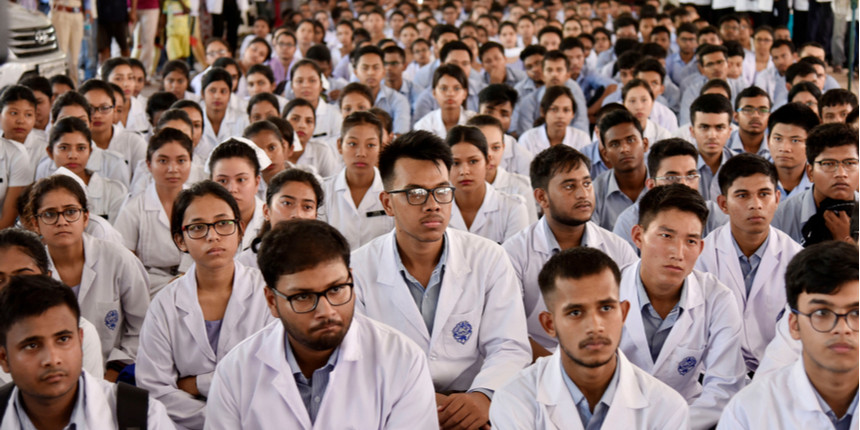The requirements for NEET-UG state quota seats in medical schools connected to Delhi University (DU) and Guru Gobind Singh Indraprastha University (GGSIPU) have recently come under scrutiny. A National Eligibility-cum-Entrance Test (NEET) applicant has launched a lawsuit in an effort to make residency a requirement for applicants to the state quota MBBS and BDS seats. The affected universities, the state government, and the Directorate General Health Services have all received notices from the Delhi High Court, which has taken cognizance of the situation. Let’s examine this case’s specifics and ramifications in more detail.
Plea and Court Activities
The NEET applicant’s argument challenges the absence of a residence requirement as one of the essential qualifications for obtaining Delhi state quota seats. The petitioner claims that the current eligibility requirements for admission to undergraduate medical programmes like MBBS and BDS in the nation’s capital exclusively concentrate on completing class 11 and 12 exams from a school associated with a recognised board within Delhi. The petitioner claims that this stringent criterion has given rise to unethical behaviour, with schools in Delhi allegedly offering a “dummy schooling platform” to kids from outside Delhi who move to the city following their class 10 examinations in order to take advantage of the benefits of Delhi state quota seats.
According to the petitioner, these unreasonable and arbitrary restrictions have led to the misuse of state quota seats, which should ideally be given to lawful Delhi residents. In order to ensure that the seats are properly allotted to eligible candidates from the National Capital Territory of Delhi (NCT), the petition emphasises the necessity of making residence one of the necessary eligibility requirements.
Notices have been given to GGSIPU, Delhi University, the state government, and the Directorate General Health Services by the Delhi High Court, which is being represented by Justice Purushaindra Kumar Kaurav. They have been given two weeks from the date of the notice to file their replies, under the court’s directive. On August 7, 2023, there will be another hearing in this case.
Concerns and Implications
The allotment of MBBS and BDS seats in medical colleges affiliated with GGSIPU and Delhi University may be significantly impacted if domicile is made a requirement for qualifying for state quota seats. If the petitioner’s case is accepted by the court, it would be made sure that only students who are legitimate Delhi residents are eligible for state quota seats. This action is intended to stop kids from other states from abusing the system by moving to Delhi following their class 10 exams.
But this choice can also prompt questions about fairness and equitable access for prospective medical students. Even if it aims to safeguard the rights of actual Delhi residents, it may unintentionally reduce the opportunities for deserving students from other states who have a genuine desire to study in the capital.
An significant step in resolving the issues stated by the petitioner is the Delhi High Court’s decision to issue notices on the argument challenging the eligibility requirements for NEET-UG state quota seats in medical colleges affiliated with GGSIPU and Delhi University. To guarantee that genuine Delhi residents receive their due share of state quota seats, the petitioner is asking for the inclusion of domicile as a necessary eligibility requirement. However, it is still unclear how the court would strike a balance between Delhi residents’ interests and the aspirations of deserving students from other states.























